Cassava Flour: Everything You Need to Know
Cassava flour is a grain free and gluten free baking flour that is great for cooking and baking. This guide to Cassava Flour includes everything you need to know. From what it is, its nutritional value, health benefits, a common misconception, and some recipes, this guide has it all!
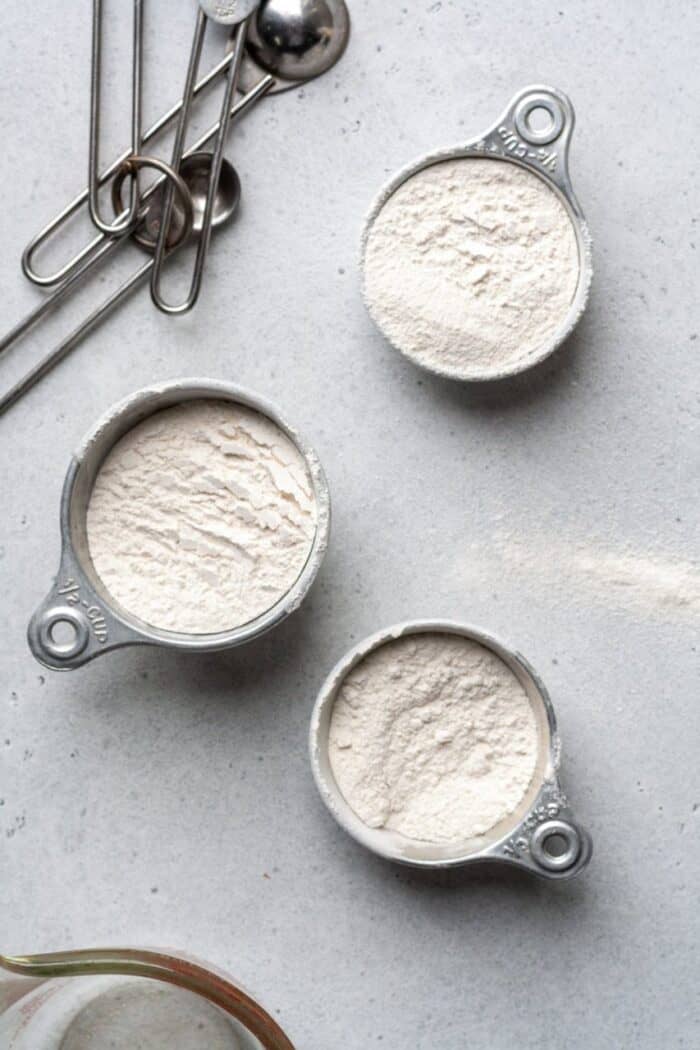
What is Cassava Flour?
Cassava flour is a Paleo flour that is easy to work with and nutritionally dense. This grain free, gluten free, and nut free flour has been hailed as the closest gluten free flour to white flour. This flour is made from the root vegetable cassava.
Its texture, appearance and flavor profile are similar to that of white flour. In addition, this flour is great for both sweet and savory recipes. Other names include manioc and yuca (sometimes spelled yuca). Is manioc flour gluten free? Yes!
How is it Made?
Cassava is a root vegetable that is found in South America and parts of Africa. The flour is made from dried up and peeled cassava root. The ENTIRE root is then ground up into a flour. The result is a powdery flour texture that is great for replacing white and wheat flour. It is Paleo, Grain Free, Gluten Free, Vegan, Dairy Free and Sugar Free.
I highly recommend Otto’s Naturals Cassava Flour. This is their process. They dry the cassava roots in ovens instead of the sun within a 36 hour window of harvest. Sun drying brings an unwanted fermentation flavor to the flour. In addition, sun drying exposes the root to molds and other food droppings.
Larger cassava roots produce more flour than younger roots. This yields less expensive flour pound for pound. However, mature roots have higher amounts of fiber. This surplus of fiber can negatively affect baking and lead to gritty baked goods.
Another method removes the majority of the fiber, which can be sold as a different product. This removes all absorption from the flour and can also lead to baking issues. This would be like trying to bake with only tapioca flour.
Both of these methods yield a less expensive product, but do not provide the best baking results. That is why I love Otto’s Naturals!
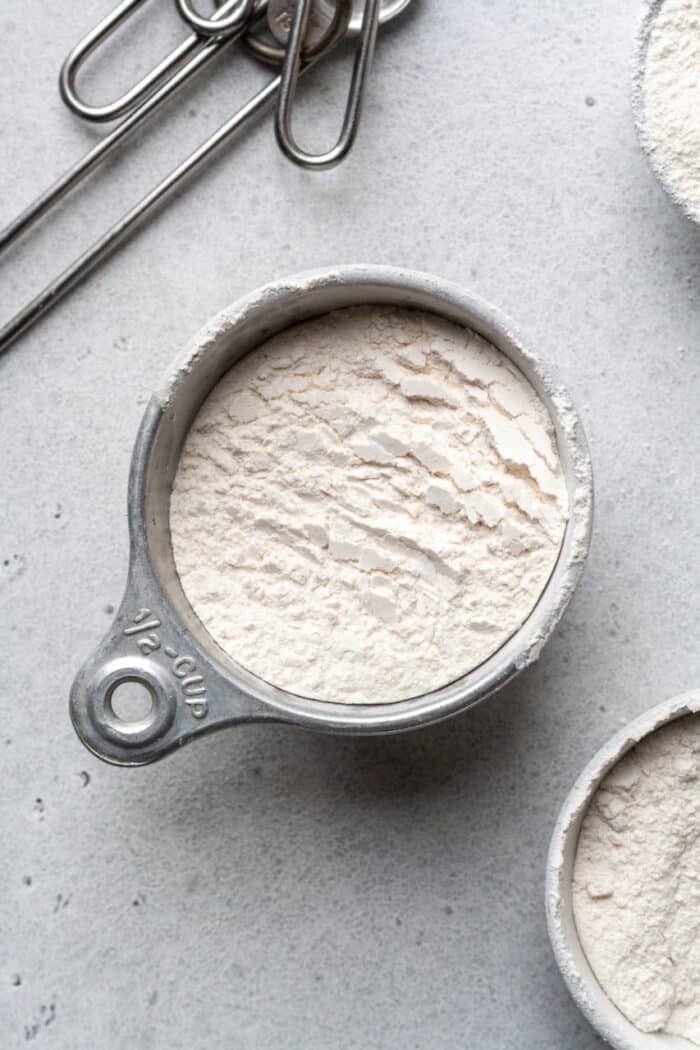
Are Cassava Flour and Tapioca Flour the Same?
No, cassava flour and tapioca flour are not the same thing. Cassava flour is made from the whole cassava root being ground up. On the other hand, tapioca flour is made from the starch that is extracted from cassava root. It does not use the entire root.
In addition, these two flours have distinctly different textures. Cassava flour resembles white flour whereas tapioca flour resembles cornstarch. Different recipes use these flours in different ways. For example, my Cassava Flour Cookies use cassava flour as their base. Tapioca flour is best used in small quantities because it is typically used as a thickener. In my Whole30 Orange Chicken, tapioca flour is used as both the breading and in the sauce as a thickener.
Cassava and tapioca flour are NOT the same. They are made differently, have different qualities, different textures, and different purposes.
Cassava Flour Benefits & Facts About Cassava
Cassava flour is low in fat, low in cholesterol and low in sodium. Additionally, is it high in Vitamin C. One cup of cassava flour contains about 70% of the recommended daily value of Vitamin C. This Paleo flour is high in healthy carbohydrates and fiber.
In addition, cassava is high in resistant starch. Resistant starch is similar to soluble fiber. Food thats are high in resistant starch can be very beneficial to the body. They are gut healthy, which can lead to low inflammation in the body. Resistant starch can potentially lead to a better metabolism, lowering the risk of diabetes and obesity. (source)

These are Cassava Flour Chocolate Chip Cookies!
Taste & Texture
Cassava flour does not have a strong nutty flavor, unlike almond flour. It is relatively neutral in taste (slightly nutty) and resembles white flour. When used in baked goods, the flavor of the flour is not overwhelming. In my Cassava Flour Brownies, the taste is not detectable whatsoever. Family and friends think these are better than boxed brownies!
Both almond flour and coconut flour are great for Paleo baking, but they both have distinct tastes. On the other hand, cassava provides a significantly more neutral option for both sweet and savory recipes.
It is important to buy a high quality cassava flour. Since it is made from a fibrous root, it can be gritty when produced in mass quantities. I suggest buying a flour that is made from younger yuca root to preserve its texture. Tapioca flour is known to be “gummy” when used in cooking, but that does not occur with cassava flour.
Substitutions
Typically, cassava flour can be used in place of white flour in recipes. A little experimentation is necessary depending on the recipe. Just as with any baking and cooking, it is best to add slightly more or less if needed. Cassava flour is slightly lighter then traditional wheat flour, but it is more absorbent.
I would not recommend substituting cassava flour for almond flour and vice versa. Additionally, almond flour is not as powdery and less absorbent.
Coconut flour is another popular Paleo and nut free baking flour. Coconut flour is extremely absorbent. For that reason, I do not recommend substituting cassava for coconut flour.
Where To Buy Cassava Flour
Where can I buy cassava flour? Cassava flour is sold at Walmart, most grocery stores and online. Amazon carries Otto’s Naturals, Anthony’s, Bob’s Red Mill, Terrasoul Superfoods, and Carrington Farms.
In addition, cassava flour products can be found in the baking aisle at most grocery stores. My local Hannaford carries it. I highly recommend the brand Otto’s Naturals.
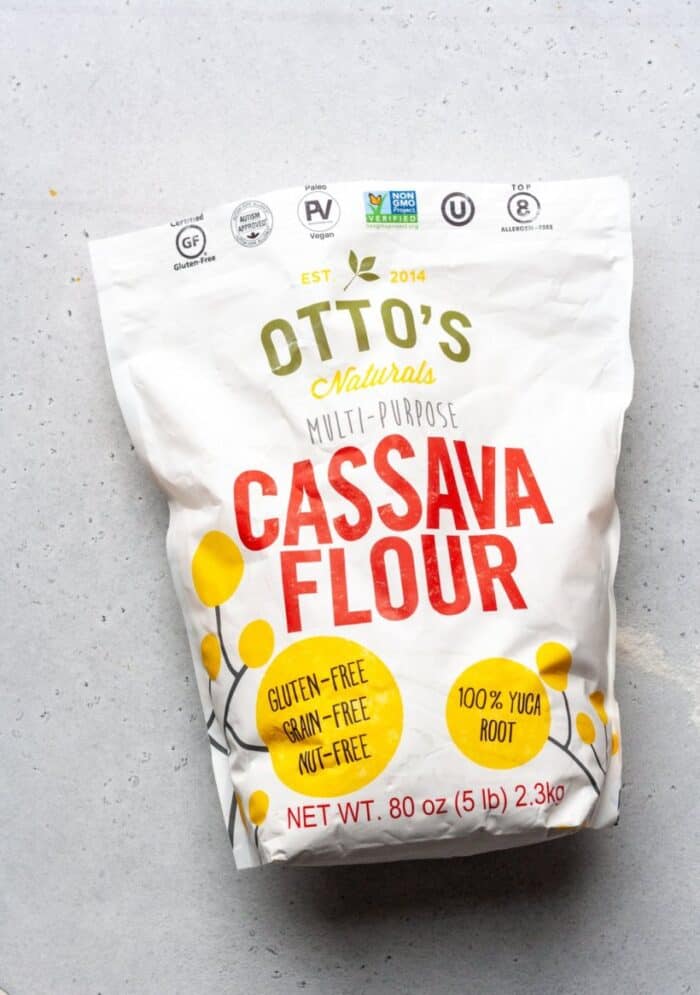
Baking With Cassava Flour
Cassava flour is a great grain free, nut free and Paleo gluten free baking flour. Unlike many other gluten free flours, it closely resembles white flour. Here are some tips for baking with yucca flour!
Do NOT substitute cassava flour for white flour 1 to 1. Although they are similar, they are not the same. Cassava flour is slightly denser and more powdery than white flour. Start with slightly less cassava flour than a recipe calls for. For example, if a recipe calls for 1 cup of white flour, try using 3/4 cups of cassava flour in its place. Then adjust as needed.
Cassava flour is much more absorbent than white flour. It soaks up liquid much more quickly than traditional flour. Unless adjusted, this can yield dry baked goods. Adjust wet ingredients as needed.
Carefully measure. Since this flour is dense and powdery, adding too much or too little can throw off a recipe. It is ALWAYS easier to start with too little and add more than adding too much.
Since this flour comes from a root vegetable, it leaves a slight nutty flavor to baked goods. I honestly do not even notice it anymore, but it’s something to be aware of.
Recipes
Due to its similar nature to white flour, cassava flour can be a godsend in gluten free baking! Gone are the days when achieving that perfect cookie or brownie texture is impossible. Cassava flour truly transforms gluten free baked goods. Here are some the best cassava flour recipes.
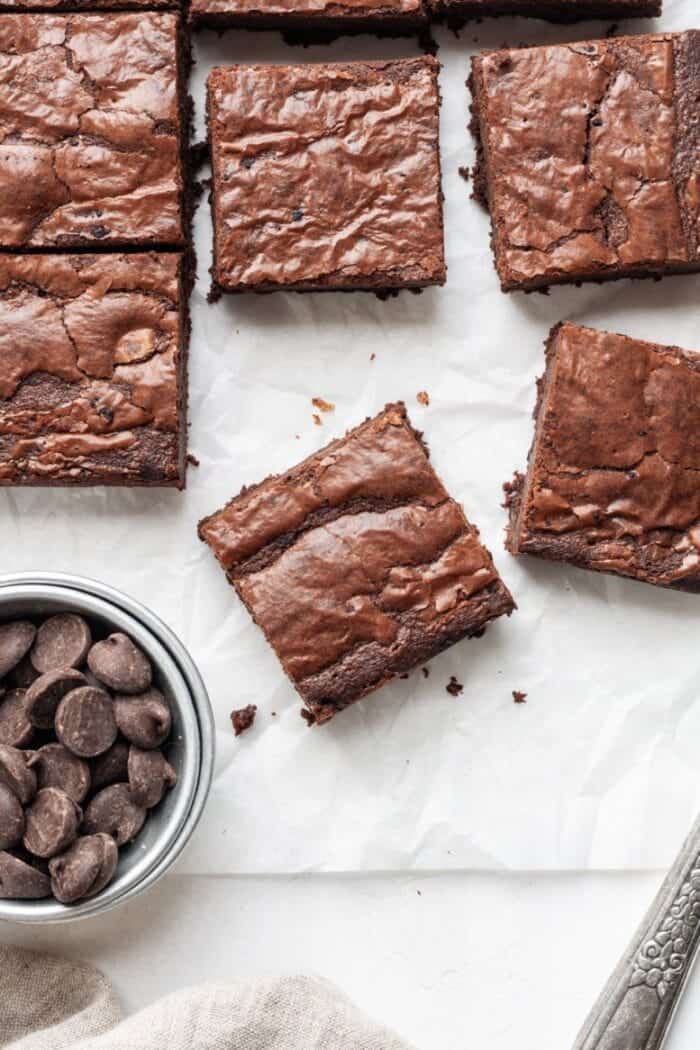

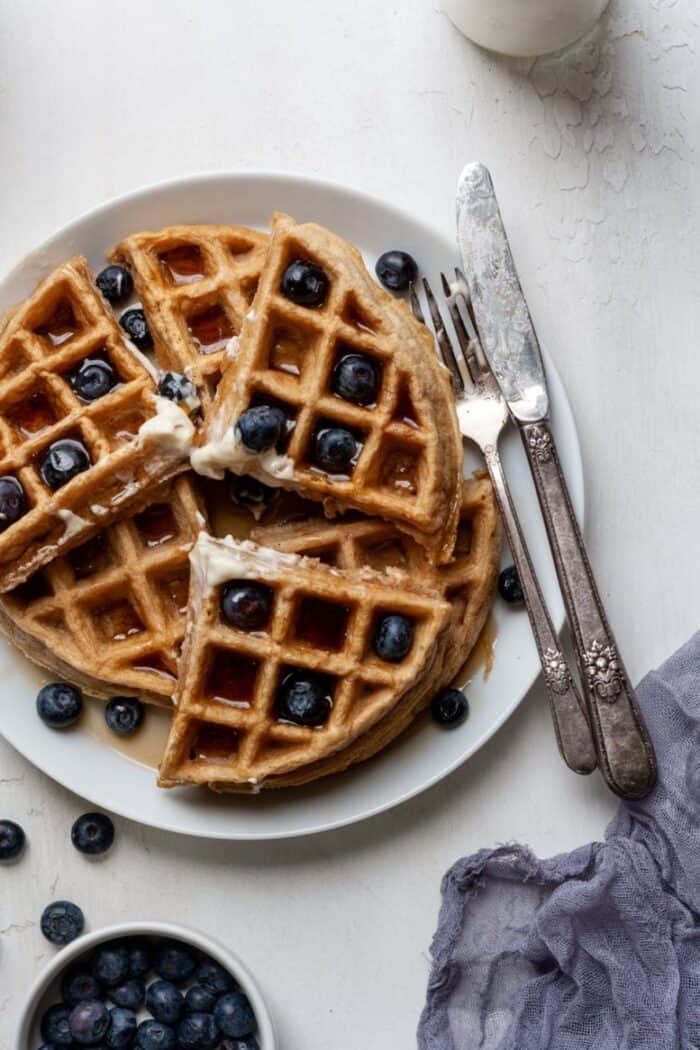
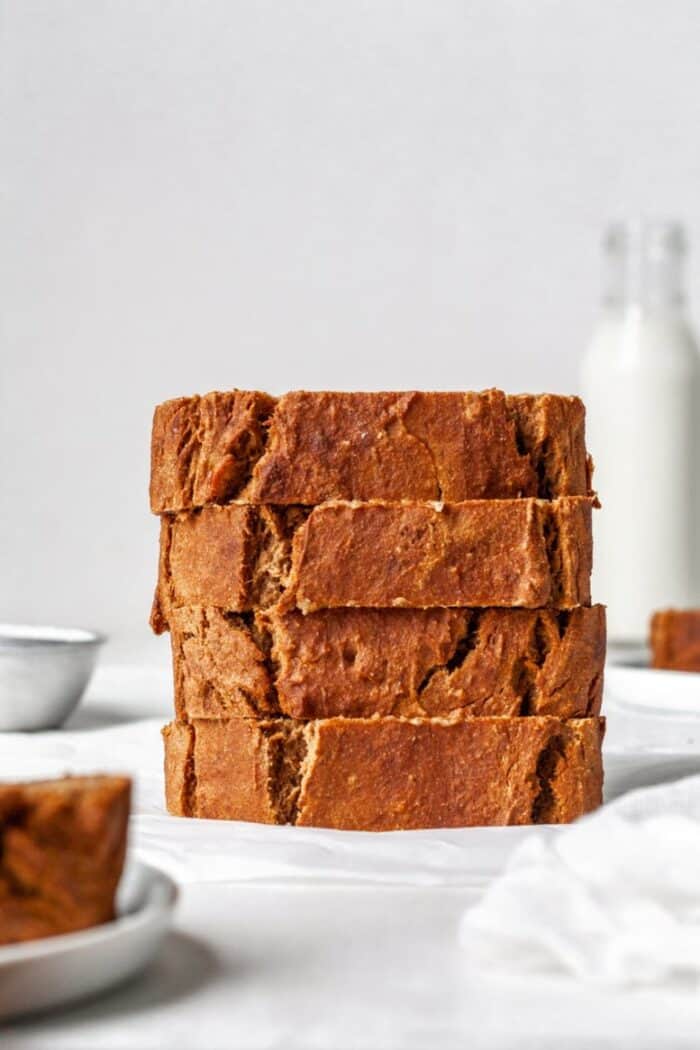
Cassava Flour Nutrition Facts
According to the USDA, 1 cup of cassava flour has around 330 calories.
It contains no cholesterol and less than 1 gram of both saturated fat and total fat. Per 1 cup, it has approximately 30 grams of sodium, 550 grams of potassium, and 78 grams carbohydrates.
In addition, this yucca flour contains over 3 grams of fiber, more than 3 grams of sugar, and almost 3 grams of protein.
Frequently Asked Questions (FAQs)
Yes, this is a healthy flour. Since it is made from a root vegetable, it is high in vitamins, minerals and fiber.
Yes, it is gluten free. In addition, it is grain free, nut free, and Paleo.
I would not suggest swapping cassava flour for almond flour. They have different textures, different tastes and different purposes.
No, cassava flour is not Keto. It is high in carbs.
No, it is considered to be anti inflammatory.
Yes, cassava flour is Whole30 compliant.
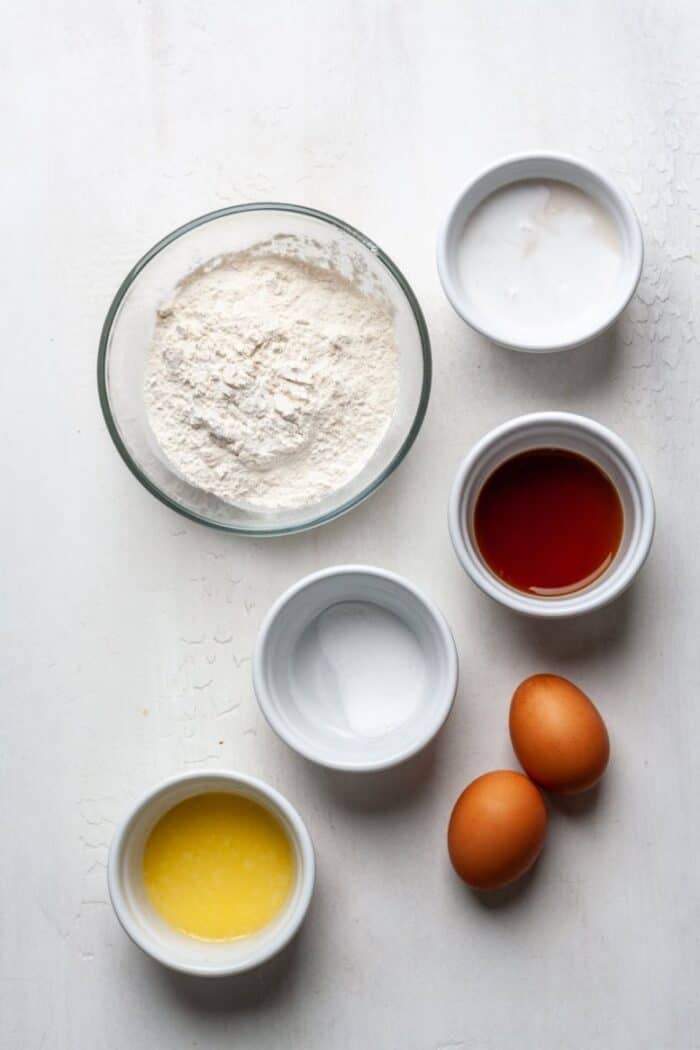
Is Cassava Flour Poisonous?
A common misconception is that cassava flour could potentially be dangerous. There is a cyanide compound found in this flour that can be toxic if eaten raw. This cyanide compound is also found in almonds and spinach, which are two very popular foods.
Commercially sold cassava flours use a process that includes soaking, heating and then fermenting the flour to prevent this toxicity. Otto’s Naturals cites on their page that they lab test each batch before selling.
If you make any of these recipes, I would love to see it! You can find me on Instagram, Facebook, and Pinterest. I would love for you to follow along!
Have you signed up for my free newsletter? You can sign up here to receive healthy meal plans and new recipes!


30 Comments on “Cassava Flour: Everything You Need to Know”
Will have to try cassava flour glad to know it is GF
THANKS for all the helpful and informative article
I had heard of cassava flour, but I wasn’t sure how to use it. Thanks for all the links to recipes that contain it, and the informative post about the health benefits; I’m going to pick some up at the store and give it a try!
Wow, so much great info! I already love baking with cassava flour so it’s awesome to know all of the health benefits it has. Can’t wait to try some of these delicious recipes with it!
Wow! What a great post about this wheat flour alternative! I was looking for a gluten free alternative and this is the one I‘ll try! Thanks so much for the detailed information!!
Thank you for writing such an informative post on cassava flour! I learned so much!
Thank you so much for the information and recipes! I love that it is gluten free!
Of cassava flour I heard today for the first time! Sounds totally interesting! Thank you for this detailed article!
This is such an amazing article! So insightful and helpful, thank you!
Thank you so much for all the info. I just started using cassava flour in my cooking and didn’t know many of the facts until I read your article. Very very helpful.